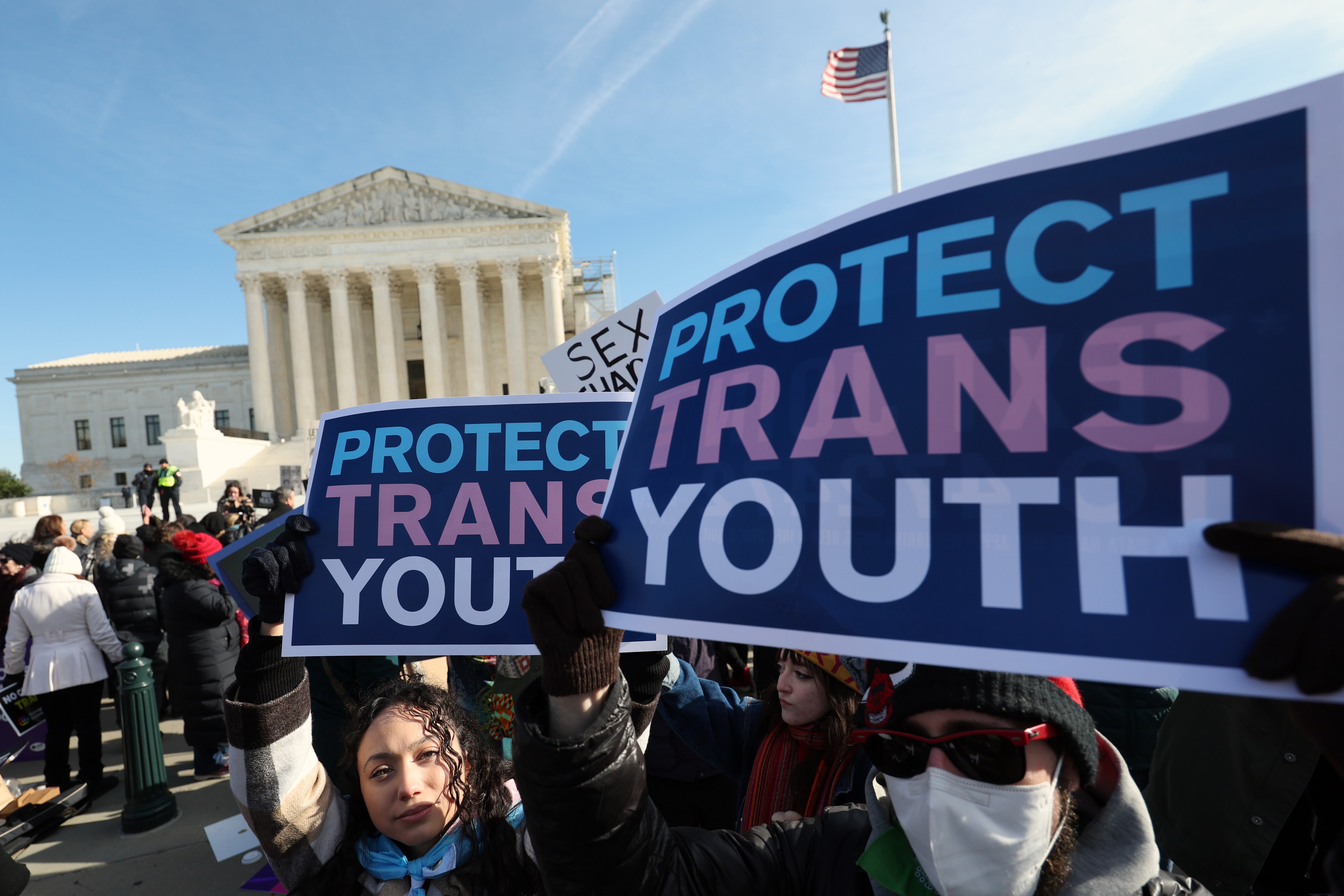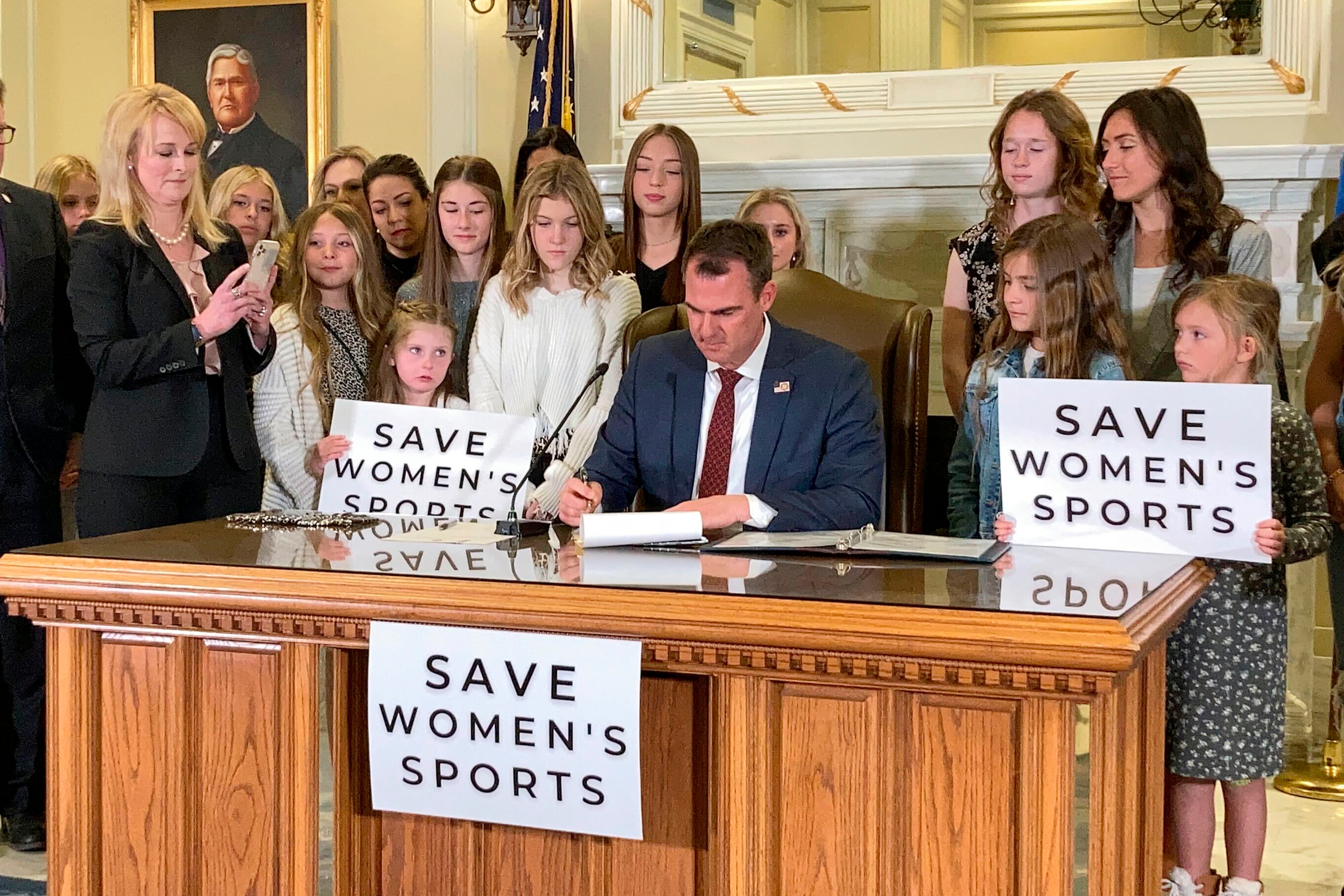The federal government will only recognize a person’s gender as it is defined by their biological sex at birth per an executive order signed by President Donald Trump – a policy that is expected to have consequences on all people and faces major legal challenges
Reversing several Biden administration policies, Trump has directed federal agencies to define gender as only male or female and reject a person’s preferred gender identity or pronouns.
Federal agencies have 120 days to implement the new policy meaning there could be big changes to protections in education, healthcare, the military and more.
“Their appalling approach denies science and will make life immeasurably harder for intersex, nonbinary, and of course, transgender people,” Kevin Jennings, the CEO of Lambda Legal said in a statement.
While the exact scope of the new policy is unclear, it will face legal challenges from advocacy groups.
Here is how the executive order will change current policies.
Re-defining “sex”
Trump’s executive order broadly rejects gender identity and requires the government to only define gender as sex at birth which will revoke protections for nonbinary, transgender, intersex and cisgender people.
Though the executive order is framed as a means to protect women, one section deliberately states “women are biologically distinct from men” which could have far-reaching consequences for cisgender women too.
“Attacks on nondiscrimination protections would not only be in direct conflict with the Bostock v. Clayton County (2020) decision, but could erode important protections that many Americans now take for granted – including that a non-transgender woman in the workplace who is perceived to be violating gender norms in terms of her dress, decision to work outside the home, affect or other presentation is protected from discrimination under Title VII,” Cathryn Oakley, the senior director of legal policy at Human Rights Campaign told The Independent.

“If you think about all of the things women have been denied being able to do, based on these ideas-- for example, serving on juries, joining the military-- this executive order is bad for everyone,” Jess Braverman, an attorney and the legal director at the nonprofit Gender Justice told Minnesota Now.
Government documents
People who identify with a gender that is different from their sex at birth can no longer obtain government-issued documents reflecting their gender identity. That includes passports, visas, and Global Entry cards.
However, anyone with a government-issued document that does currently reflect their gender is permitted to keep it. The executive order is not retroactive.
The executive order does not apply to state-issued documents such as driver’s licenses or birth certificates. However, since state and federal documents often must match to confirm a person’s identity, it is unclear how the executive order will work with state laws.
Oakley said having mismatched documents that do not reflect who a person is, “could subject them to travel disruptions, harassment, and humiliation.”
Bathrooms
Bathrooms located on federal properties, such as at national parks or in federal buildings, may be required to define restrooms as male or female under the new executive order due to its language.
Under the order, Trump has asked federal agencies to ignore the precedent set in the Supreme Court case Bostock v. Clayton County (2020) which prevents a person from discrimination based on sexual orientation or gender identity.
Executive orders do not override Supreme Court precedents or the U.S. Constitution. It is unclear if that directive will remain.
But if upheld, it could mean federal employees are required to use the bathroom consistent with their sex at birth rather than gender identity.
“This could open a transgender or nonbinary person up to misgendering, harassment, and humiliation at work – simply for being themselves,” Brandon Wolf, the national press secretary for the Human Rights Campaign said in a press release.

Prisons
Trump’s order directly asks the Attorney General and Secretary of Homeland Security to separate those detained in federal prisons based on their sex at birth rather than gender identity, but this can open the door to more violence against nonbinary or transgender people.
“Violence against [transgender and gendernonconforming] people tends to be worse in places that are separated by sex such as county jails, immigration facilities and prisons,” a statement from Lambda Legal said.
The civil rights organization said policies like this make transgender people more vulnerable to harassment or attacks.
“A California study found that transgender people were 13 times more likely to be sexually assaulted than non-transgender people in prison,” Lambda Legal continues.
Military
Transgender or nonbinary members of the military are no longer protected by laws that allow them to serve. It does not immediately impact transgender people in the military.
Trump has rescinded a Biden administration policy that provided protections, which could open the door for a ban on transgender military personnel – a move that Trump executed in 2017.
“Trump Administration efforts to mandate sex stereotypes and attack nondiscrimination protections will have sweeping consequences for the American people, whether you are transgender or not,” Oakley added.







